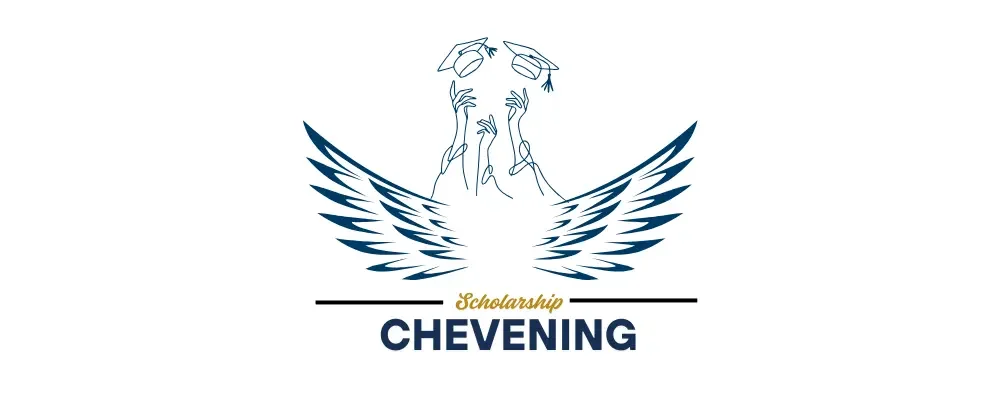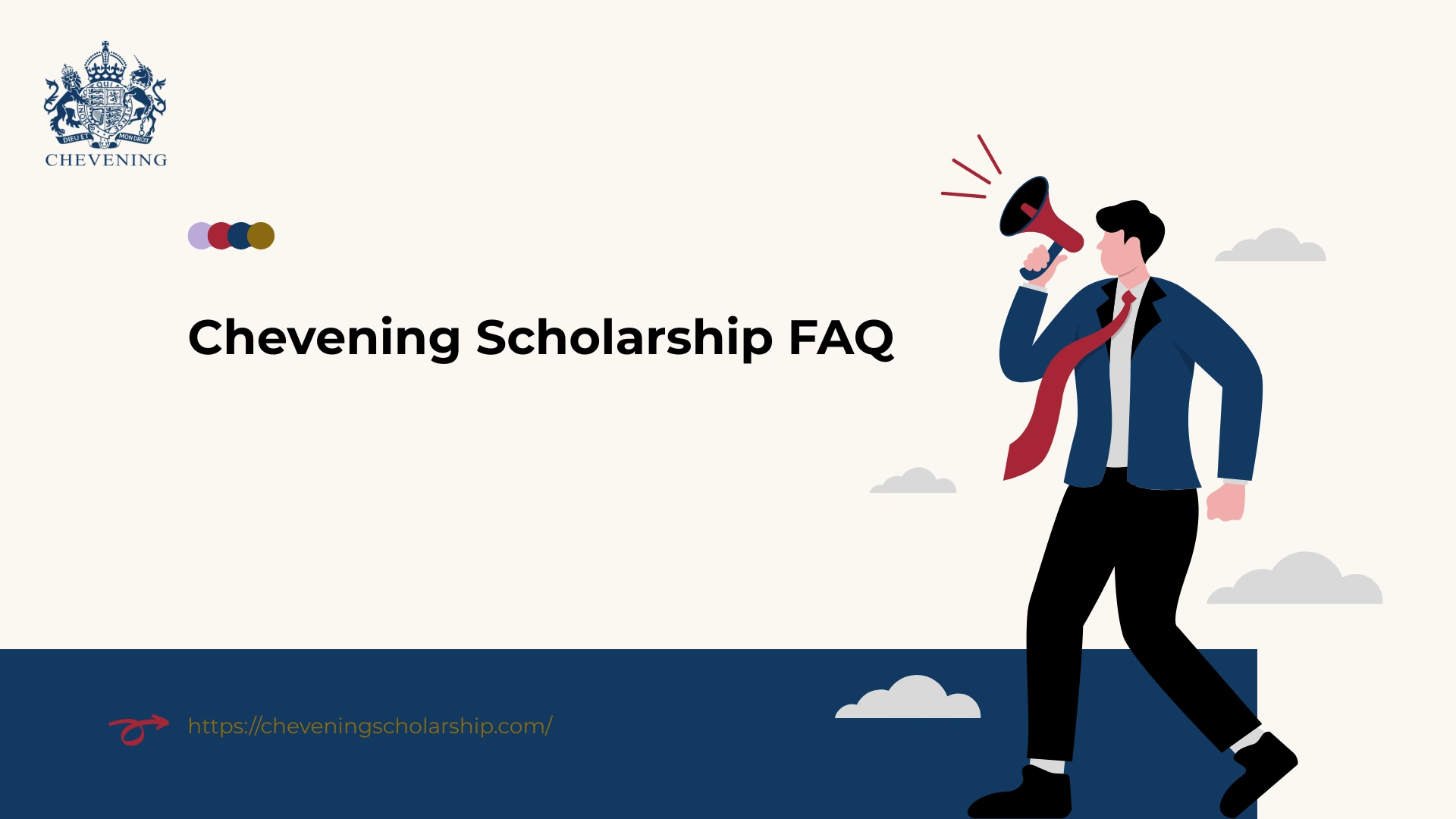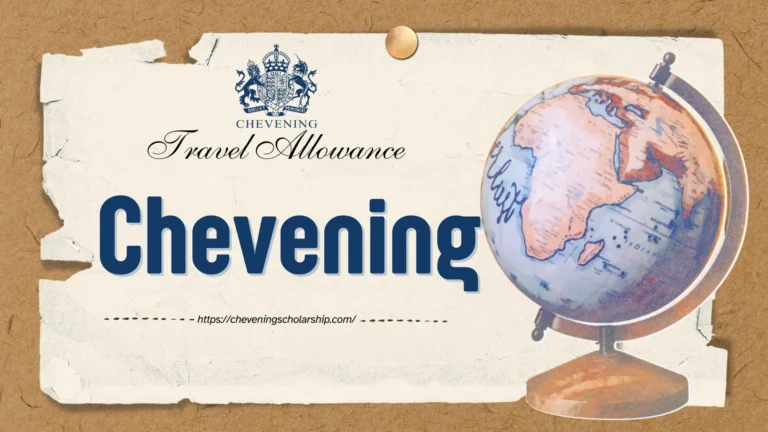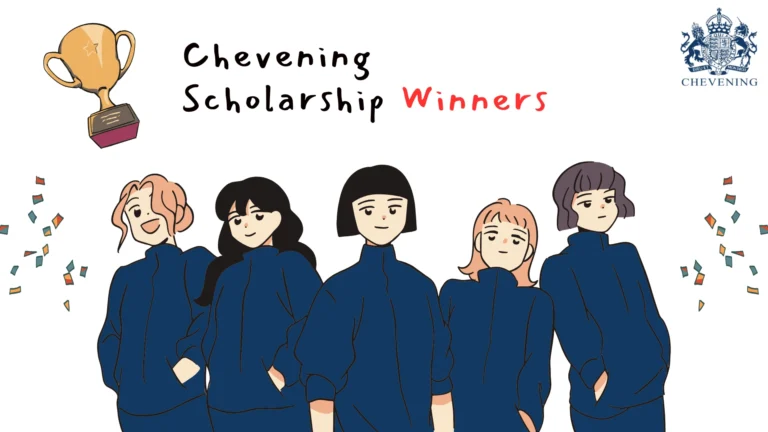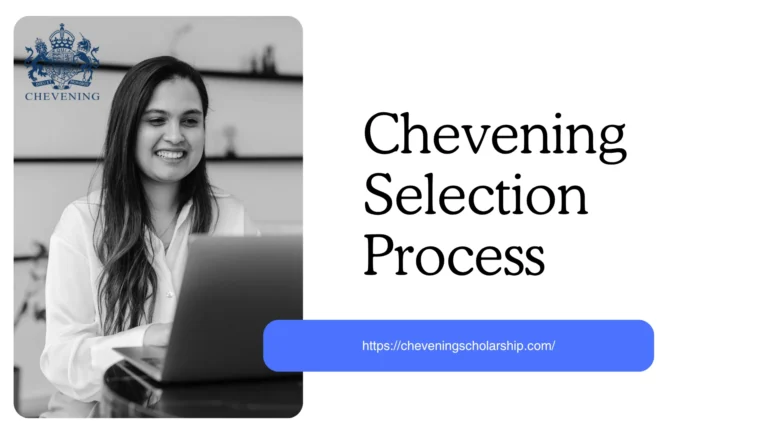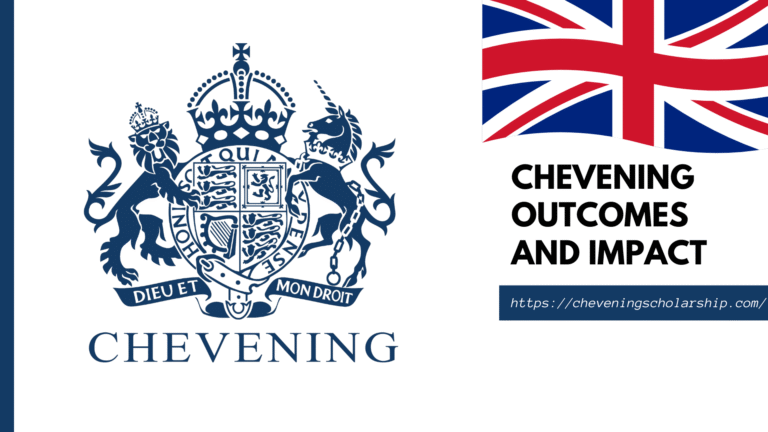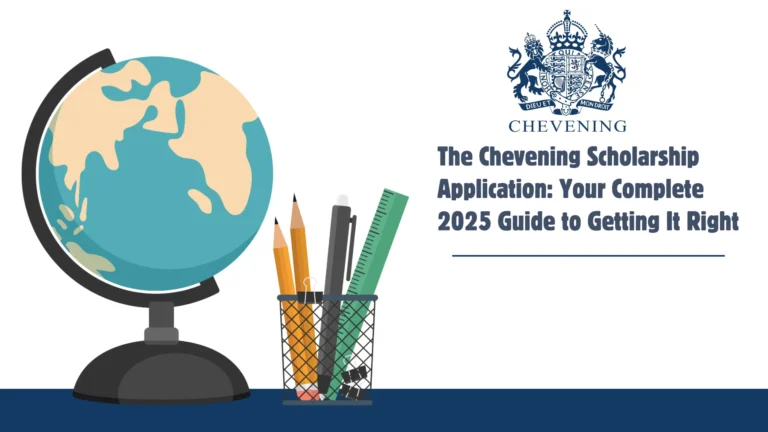Chevening Scholarship FAQ: Everything You’ve Been Dying to Ask (And Some Questions You Didn’t Know You Had)
Let’s be honest—applying for Chevening is like trying to decode the Da Vinci Code while juggling flaming torches. Blindfolded. In the rain.
I get it. You’re sitting there with seventeen browser tabs open, each contradicting the last one about whether you need exactly 2,800 work hours or if leadership means you founded a startup or just organized the office Secret Santa. You’ve read the official website three times and still don’t know if your reference letter should be typed or handwritten, or delivered by carrier pigeon.
Welcome to the most comprehensive Chevening scholarship FAQ guide you’ll find anywhere. I’m not going to bore you with corporate speak or vague platitudes. Instead, I’m giving you straight answers to every question that’s been keeping you up at night—plus the questions you didn’t even know you should be asking.
Grab your coffee (or third energy drink of the day), and let’s decode this thing together.
The Big Picture Questions First
What Exactly Is Chevening, Anyway?
Before we dive into the Chevening scholarship frequently asked questions, let’s establish the basics.
Chevening is the UK government’s global scholarship program. Think of it as Britain saying, “Hey, we think you’re brilliant, and we want to invest in your potential to become a future leader.”
Romantic, right? Also competitive as hell.
Each year, around 1,500 scholarships are awarded from over 60,000 applications. Yes, you read that correctly. That’s roughly a 2.5% acceptance rate. Harvard’s acceptance rate is more generous.
But don’t let that scare you. Someone’s getting those scholarships, and with the right preparation, that someone could be you.
What Does Chevening Actually Cover? (The Money Talk)
Let’s talk brass tacks. The Chevening scholarship funding FAQ is usually where people start, because, well, money matters.
Here’s what you get:
| What’s Covered | Details | Approximate Value |
|---|---|---|
| Tuition Fees | Full coverage | £15,000-£30,000 |
| Monthly Stipend | Living expenses | £1,347/month |
| Travel Costs | Return flights | £1,000-£2,500 |
| Arrival Allowance | Settlement costs | £1,344 |
| Homeward Allowance | Packing/return | £1,344 |
| Visa Application | Costs covered | £490 |
| Travel Grant | Academic events | Up to £500 |
| Total Package | £30,000-£50,000+ |
The Chevening scholarship stipend FAQ question comes up constantly. That £1,347 monthly stipend is calculated based on living costs across the UK. It’s enough if you’re sensible, tight if you’re in London, comfortable if you’re in, say, Sheffield.
Is Everything Really Free? (The Catch Questions)
The Chevening scholarship funding coverage FAQ always includes this one: “What’s not covered?”
You’ll need to sort out:
- Any costs before you arrive (pre-departure expenses)
- Personal expenses beyond the stipend
- Dependents’ costs (Chevening is for you alone—no partner/kids coverage)
- Course materials or equipment beyond basics
- Optional study trips or conferences (beyond the small travel grant)
The real catch? You must return to your home country for at least two years after your scholarship ends. This isn’t negotiable. Chevening invests in future leaders who’ll return home and make an impact, not in people seeking UK immigration routes.
If you’re thinking “scholarship first, then figure out how to stay in the UK forever,” Chevening isn’t for you. And they’ll know. Trust me.
Eligibility: The “Do I Even Qualify?” Section
The Basic Requirements (Chevening Eligibility FAQ)
Let’s knock out the obvious Chevening eligibility FAQ questions first:
You need:
- Citizenship of a Chevening-eligible country (most Commonwealth and many other countries qualify)
- An undergraduate degree that qualifies you for a UK master’s
- At least two years of work experience (2,800 hours minimum)
- To return to your home country for at least two years after scholarship
- To apply to three eligible UK universities and receive an unconditional offer from one
You’re not eligible if:
- You hold UK or dual-UK citizenship
- You hold refugee status in a non-Chevening eligible country
- You’ve previously studied in the UK with UK government funding
- You’re currently working or studying in a Chevening-eligible country
The Work Experience Question (That Trips Everyone Up)
The Chevening scholarship work experience FAQ is where things get interesting.
The official line: 2,800 hours of work experience. That’s roughly two years of full-time work.
What actually counts:
- Full-time employment ✓
- Part-time work (pro-rated) ✓
- Internships (paid or substantial unpaid) ✓
- Voluntary work in professional capacity ✓
- Self-employment/entrepreneurship ✓
What doesn’t count:
- University coursework or projects ✗
- Casual volunteering ✗
- Internships that were purely educational ✗
- Work done as part of your degree requirement ✗
Real talk: They’re looking for quality, not just quantity. Two years of progressively responsible work where you demonstrated leadership beats five years of showing up and doing the bare minimum.
One applicant I know combined:
- 1 year full-time NGO work
- 6 months as a freelance consultant
- 1 year part-time social enterprise work while finishing undergrad
She calculated everything precisely, documented it thoroughly, and got selected. The work was diverse but showed consistent commitment to social impact.
Country-Specific Eligibility Questions
The Chevening scholarship eligibility Pakistan FAQ and Chevening scholarship eligibility India FAQ come up frequently because these countries have the most applicants.
For Pakistan:
- You must be a Pakistani citizen
- You cannot have spent more than a total of 6 months studying in the UK previously
- Check the Pakistan country page for any specific priorities or focus areas
For India:
- Indian citizenship required
- Same 6-month previous UK study restriction applies
- Competition is fiercer (massive applicant pool)
For all countries: Check your specific country page on the Chevening website. Some countries have priority sectors or specific partnerships that could affect your application strategy.
The Application Process: A Step-by-Step FAQ
When Do I Apply? (Chevening Application Timeline FAQ)
The Chevening application timeline FAQ is crucial because missing deadlines equals instant rejection.
Standard Timeline:
| Date | Action |
|---|---|
| August (typically) | Applications open |
| Early November | Application deadline |
| December-February | Shortlisting and reference checks |
| February-April | Interviews conducted |
| May-June | Final selections announced |
| September | Scholars depart for UK |
Critical deadlines for your Chevening scholarship application deadline FAQ:
- Application submission: Early November (exact date varies)
- University applications: You have until July to secure offers, but earlier is smarter
- Reference submission: References must be in before deadline—chase them early
Can you get a Chevening scholarship deadline extension FAQ?
Nope. Unless there’s a documented emergency (think hospitalization-level emergency, not “my laptop died”), deadlines are hard deadlines. The system locks you out. No appeals, no exceptions
What Documents Do I Need? (The Checklist)
The Chevening scholarship documents FAQ section keeps people up at night. Here’s your complete list:
Required documents:
- Passport or national ID (valid, clear scan)
- Undergraduate degree certificate (official translation if not in English)
- Undergraduate transcripts (showing grades/marks)
- Two reference letters (more on this below)
- Unconditional UK university offer (not at application, but before July)
- IELTS or equivalent (if required by your universities)
The Chevening scholarship documents submission FAQ timing:
- Application documents: Submitted with your online form
- References: Submitted directly by referees before deadline
- University offers: Uploaded to your portal by July
Pro tip: Scan everything in high quality. Blurry documents delay processing and create unnecessary stress. Get official translations done early if needed—don’t rely on Google Translate screenshots.
How Do I Choose My References? (Chevening Scholarship References FAQ)
The Chevening scholarship references FAQ is where many good applications die.
What they’re looking for:
- Professional references (not personal)
- People who’ve supervised your work directly
- References who can speak to your leadership and impact
- Referees who’ll actually submit on time
Who to avoid:
- Family members (obviously)
- Friends, even if they’re professionally accomplished
- People who supervised you for two weeks five years ago
- Anyone who won’t prioritize your deadline
The ideal referee combination:
- Referee 1: Direct supervisor at your most significant/recent role
- Referee 2: Academic supervisor, previous employer, or someone who’s witnessed your leadership in action
Real scenario that worked: One successful applicant used:
- Current manager at an international NGO
- University professor who supervised her honors thesis and continued mentorship
Both could speak to different aspects of her capabilities. Both submitted within 48 hours because she’d briefed them thoroughly weeks in advance.
Referee management tips:
- Ask at least 2 months before deadline
- Provide your CV, key achievements, and what qualities you need highlighted
- Send gentle reminders (week before, day before)
- Have a backup referee ready in case someone flakes
The Essay Questions: Breaking Down the Chevening Application FAQ
The Four Essays That Make or Break You
The Chevening scholarship essays FAQ and Chevening scholarship personal statement FAQ overlap significantly. Here’s what you need to know:
Essay 1: Leadership and Influence (minimum 50 words, maximum 500) This is your chance to show, not tell. Don’t write “I am a natural leader.” Write about the specific time you mobilized people toward a goal, the obstacles you faced, and the measurable impact you created.
Essay 2: Networking (minimum 50 words, maximum 500) They want to see relationship-building skills. How do you create and maintain professional relationships? How have your networks helped you achieve goals? Be specific and strategic, not superficial.
Essay 3: Studying in the UK (minimum 50 words, maximum 500) This isn’t a love letter to London. Explain why UK education specifically will help you achieve your goals. Reference specific courses, faculty, methodologies, or opportunities unique to UK institutions.
Essay 4: Career Plan (minimum 100 words, maximum 500) The post-return plan. This needs to be realistic, specific, and aligned with your country’s needs. Vague “I’ll help my country develop” won’t cut it. “I’ll implement evidence-based policy reforms in education sector targeting rural infrastructure gaps” shows you’ve thought it through.
Common essay mistakes:
- Being too generic (could apply to any scholarship)
- Focusing on what you’ll gain rather than what you’ll give back
- Exaggerating or fabricating achievements
- Ignoring the word limits (yes, they count)
- Not connecting your past experience to future plans
Course Selection: The Strategic Element
The Chevening scholarship course selection FAQ requires strategy, not just passion.
You must select three UK universities. But this isn’t about prestige ranking.
Consider:
- Match: Does the course align with your career plan?
- Feasibility: Will you realistically get accepted?
- Location: Can you afford to live there on the stipend?
- Outcomes: What’s the employment/impact rate of graduates?
Smart combination example:
- Reach: Oxford/Cambridge program (why not try?)
- Match: King’s College London or Edinburgh (strong programs, reasonable acceptance)
- Safety: Solid program at a less competitive university
Can you change courses after applying? The Chevening scholarship course change FAQ answer: It’s complicated. You can update choices in your portal, but making too many changes looks unfocused. Choose strategically from the start.
The Interview: Chevening Scholarship Interview FAQ
What to Expect
The Chevening scholarship interview FAQ section makes people sweat. Understandable—this is where dreams get realized or crushed.
Interview basics:
- Conducted by British Embassy/High Commission or partner organizations
- Panel of 2-4 people
- 15-30 minutes typically
- Mix of prepared questions and follow-ups
- In-person or virtual (depending on location)
The Chevening scholarship interview format FAQ:
- Professional but conversational
- They’ve read your application thoroughly
- Expect deep dives into your essays
- They’re testing authenticity and commitment
Common Interview Questions (Chevening Scholarship Interview Questions FAQ)
Questions you’ll definitely face:
- “Tell us about yourself” Don’t recite your CV. Tell your story in 60-90 seconds, focusing on the thread that connects your experience.
- “Why do you deserve this scholarship?” Not about deserving—it’s about fit. Show how you embody Chevening values and will maximize the opportunity.
- “Give us an example of your leadership” Use STAR method (Situation, Task, Action, Result). Be specific and quantify impact where possible.
- “How will you contribute to the UK during your time there?” Cultural exchange goes both ways. What perspectives, skills, or networks will you share?
- “What will you do when you return home?” This is THE critical question. Your answer must be specific, realistic, and aligned with your country’s needs.
- “What’s your backup plan if this doesn’t work out?” Shows maturity. Have alternative paths that still lead toward your goals.
Questions that trip people up:
- “Why these specific universities and courses?”
- “Tell us about a time you failed”
- “How do you plan to maintain your Chevening network?”
- “What challenges do you anticipate in the UK?”
- “How does this scholarship fit into your 10-year plan?”
Interview preparation tips:
- Practice out loud (recording yourself helps)
- Prepare specific examples for each essay topic
- Research your interviewers if possible (LinkedIn)
- Have questions ready to ask them
- Dress professionally, even for virtual interviews
- Test technology beforehand for virtual formats
The Weird Questions Nobody Warns You About
Questions I’ve heard about from past interviewees:
- “If you could have dinner with any world leader, who and why?”
- “What’s the biggest challenge facing your country right now?”
- “How do you stay motivated when facing setbacks?”
- “Tell us about a time you challenged authority”
- “What will you miss most about home while in the UK?”
The point isn’t the specific answer. It’s seeing how you think, whether you’re genuine, and if you can articulate ideas clearly under pressure.
After You Apply: The Waiting Game
How Do I Check My Status? (Chevening Scholarship Application Status FAQ)
The Chevening scholarship application status FAQ is about managing anxiety more than anything.
Here’s the reality:
- You’ll get email confirmation when you submit
- Then… silence for months
- You cannot check status online (no portal updates)
- You’ll only hear from them if you’re shortlisted for interview
- Final decisions come in May-June
What to do while waiting:
- Apply to your three universities (don’t delay this!)
- Prepare for potential interview
- Work on backup scholarship applications
- Focus on your current job/studies
- Resist the urge to email them constantly
What If I Get an Offer? (Chevening Scholarship Offer FAQ)
The Chevening scholarship offer FAQ and Chevening scholarship acceptance FAQ cover the happy scenario.
If you’re selected:
- You’ll receive formal offer letter (usually May-June)
- Accept within stated deadline (typically 2-3 weeks)
- Provide confirmation of unconditional university offer (by July)
- Complete pre-departure formalities:
- Visa application support
- Medical clearance (if required)
- Pre-departure briefing
- Banking setup information
Can you defer? The Chevening scholarship deferral FAQ answer: Generally no, except in exceptional documented circumstances (serious illness, family emergency). You’d need to reapply for the next cycle.
What if you have multiple offers? Lucky you. Choose the best fit for your goals, but honor your commitment once you’ve accepted.
The Tough Questions: Rejection and Reapplication
Why Do Applications Get Rejected? (Chevening Scholarship Refusal FAQ)
The Chevening scholarship refusal FAQ is painful but necessary.
Common rejection reasons:
| Reason | Why It Happens |
|---|---|
| Insufficient work experience | Didn’t meet 2,800 hours or couldn’t document it |
| Weak career plan | Vague or unrealistic return plans |
| Poor fit | Doesn’t align with Chevening values |
| Application quality | Grammatical errors, incomplete sections, generic essays |
| Weak references | Late submission, generic content, or questioned credibility |
| Interview performance | Couldn’t articulate plans, seemed insincere, or unprepared |
| Eligibility issues | Discovered ineligibility during verification |
The brutal truth: Sometimes it’s just competition. You might be qualified but there are 30 people with similar profiles competing for 10 spots in your sector/country.
Can I Reapply? (Chevening Scholarship Reapplication FAQ)
Yes. The Chevening scholarship reapplication FAQ answer is actually encouraging.
Reapplication guidelines:
- You can apply as many times as you remain eligible
- Many successful scholars applied 2-3 times
- Each application should be stronger than the last
- Use feedback from previous experience
If reapplying:
- Strengthen your weak areas (more work experience, better essays, stronger references)
- Apply to different universities if previous choices didn’t work out
- Update your career plan to reflect growth
- Don’t just copy-paste your previous application
Success story: I know someone who applied three times. First time: weak work experience. Second time: better experience but poor interview. Third time: nailed everything and got selected. The persistence showed in her answers—she’d genuinely used those two years to grow.
Money Matters: The Practical FAQ
When and How Do You Get Paid? (Chevening Scholarship Payment FAQ)
The Chevening scholarship payment FAQ covers logistics:
Payment structure:
- Tuition: Paid directly to university
- Stipend: Monthly payments to your UK bank account
- Arrival allowance: Lump sum upon arrival
- Travel: Reimbursed after booking (keep receipts!)
Setting up banking: Chevening provides guidance on opening UK bank accounts. You’ll need this to receive your monthly stipend. Most scholars use Lloyds Bank, which has special arrangements for international students.
Chevening Scholarship Competition: The Brutal Truth About Your Odds (And How to Beat Them)
What About Housing? (Chevening Scholarship Housing Allowance FAQ)
The Chevening scholarship housing allowance FAQ and Chevening scholarship housing FAQ overlap.
The reality:
- There’s no separate housing allowance
- Your monthly stipend (£1,347) covers everything: rent, food, transport, personal expenses
- You’ll need to budget carefully, especially in London
Housing costs by city:
- London: £800-1,200/month for shared accommodation
- Edinburgh, Bristol, Manchester: £500-800/month
- Smaller cities: £400-600/month
Budgeting tip: Apply to universities in cities with lower living costs. You’ll have the same degree value but far less financial stress.
Health Insurance and Medical Coverage (Chevening Scholarship Health Insurance FAQ)
The Chevening scholarship health insurance FAQ is straightforward:
Covered:
- Immigration Health Surcharge (gives you NHS access)
- Emergency medical care
- Standard NHS services
Not covered:
- Dental (except emergency treatment)
- Optical (eye tests, glasses)
- Private healthcare
- Pre-existing condition treatments not covered by NHS
Pro tip: Get comprehensive dental and optical checkups before leaving home. NHS dental care is limited and often has waiting lists.
The Visa Process: Chevening Visa Application FAQ
The Chevening visa application FAQ causes unnecessary stress.
Here’s the deal:
- Chevening provides guidance and support
- You apply for Tier 4 (Student) visa
- Visa costs are covered by the scholarship
- Processing takes 3 weeks typically
Documents needed:
- CAS (Confirmation of Acceptance for Studies) from university
- Passport
- Chevening letter of confirmation
- TB test certificate (required for most countries)
- Financial documents (Chevening covers this requirement)
Common concerns:
- “What if my visa is rejected?” Rare if you follow guidance precisely
- “Can family visit me?” Yes, but they need visitor visas and their own funds
- “Can I travel in Europe during breaks?” Yes, but plan carefully and budget for it
Life During Your Scholarship
What Happens During Your Year in the UK?
Beyond the academics, Chevening offers:
Chevening Events:
- Annual Chevening Gala in London
- Regional networking events
- Professional development workshops
- Cultural activities
- Leadership courses
Responsibilities:
- Maintain good academic standing
- Engage with Chevening community
- Represent your country positively
- Share experiences (social media, blogs encouraged)
- Plan your return transition
The Alumni Network (Chevening Scholarship Alumni FAQ)
The Chevening scholarship alumni FAQ and Chevening scholarship alumni engagement FAQ matter more than you think.
Chevening alumni network includes:
- 50,000+ alumni in 160 countries
- Current and former presidents, prime ministers, ministers
- CEOs, journalists, academics, activists
- A global community that actually stays connected
Alumni benefits:
- Lifetime access to Chevening events and opportunities
- Professional networking platform
- Mentorship opportunities
- Continued professional development
- Priority consideration for UK programs and grants
Chevening Scholarships Benefits: The Complete Package Worth £50,000+ (And What Money Can’t Buy)
Advanced Questions and Edge Cases
Can I Work While Studying? (Post-Study Work FAQ)
The Chevening scholarship post-study work FAQ is tricky.
During studies:
- You can work up to 20 hours/week during term
- Unlimited hours during holidays
- But remember: your stipend is calculated assuming you won’t need to work
After graduation: The two-year home return requirement kicks in. You cannot immediately apply for UK work visas. The scholarship comes with strings attached—intentionally.
What If I Face Financial Difficulties? (Chevening Scholarship Financial Hardship Support FAQ)
The Chevening scholarship financial hardship support FAQ addresses emergencies.
If you’re struggling financially:
- Contact your Programme Manager immediately
- Document the circumstances
- Some emergency support may be available
- University hardship funds might also help
But be realistic: The stipend is tight by design. Chevening isn’t a luxury program. Budget carefully from day one.
Chevening Scholarships Eligibility for Pakistani Students: Your Complete 2025 Guide
Getting Help With Your Application (Chevening Scholarship Application Help FAQ)
The Chevening scholarship application help FAQ and Chevening scholarship application tips FAQ questions pop up constantly.
Where to get help:
- Official Chevening website: Most comprehensive resource
- British Council offices: In-country support and guidance
- Alumni networks: Many offer mentorship
- Chevening social media: Active and responsive
- Webinars: Regularly scheduled throughout application season
What they WON’T help with:
- Writing your essays for you
- Telling you exactly what to say
- Guaranteeing acceptance
- Evaluating whether you’ll be selected
The Contact Question (Chevening Scholarship Contact FAQ)
The Chevening scholarship contact FAQ is simple:
Official channels:
- Website contact form: For specific queries
- Country-specific British Embassy/High Commission
- Email: Provided on official website
- Social media: Active on Twitter, Facebook, Instagram
Response time:
- Allow 5-10 working days
- During peak application season, expect longer waits
- Emergency? Contact your country’s British Council directly
Don’t contact about:
- Application status (you’ll be notified if shortlisted)
- Why you weren’t selected (they don’t provide individual feedback)
- Appealing decisions (not possible)
Chevening Scholarship Renewal: The Truth About Extensions (And Why You Probably Can’t Get One)
Final Insider Tips Nobody Tells You
Things That’ll Actually Help
From someone who’s been through this:
- Start early, finish early Don’t wait until the deadline. Submit in October if applications open in August. You’ll catch errors, reduce stress, and impress with organization.
- Treat the application like a job Block out dedicated time. Research thoroughly. Write multiple drafts. Get feedback from critical readers.
- Be yourself They’ve seen thousands of applications. Generic “leader” speak is boring. Your authentic story, told well, stands out.
- Connect everything Your work experience should logically lead to your course choice, which should naturally support your career plan, which should obviously benefit your home country. It’s a story, not random achievements.
- Proofread obsessively Typos suggest carelessness. Get three people to read your application. Read it backwards to catch errors.
- Prepare for interview immediately Don’t wait for shortlisting. Start preparing the day you submit. Record yourself answering potential questions. It’s uncomfortable but effective.
- Have backup plans Apply for multiple scholarships simultaneously. Don’t pin everything on Chevening alone.
- Network intelligently Connect with current scholars and alumni. Ask specific questions. Show genuine interest. Build relationships, not just contacts.
- Document everything Keep copies of all documents, correspondence, and deadlines. Create a Chevening folder with everything organized.
- Manage expectations It’s competitive. Really competitive. Be proud of applying regardless of outcome. The preparation alone will make you a better candidate for everything else.
The Bottom Line
The Chevening scholarship FAQ might be long, but here’s what it all comes down to:
Chevening is looking for future leaders who’ll use UK education to create positive change in their home countries. They want people with proven track records, clear plans, and genuine commitment to returning home and making an impact.
If that’s you, then half the battle is won. The other half is presenting your story compellingly, meeting every requirement precisely, and showing up prepared when opportunity calls.
Your three action steps right now:
- Assess eligibility honestly — Don’t waste time if you’re not qualified. If you’re borderline, focus on strengthening weak areas before next cycle.
- Start drafting your narrative — Even if applications aren’t open, begin writing your story. What’s the thread connecting your past, present, and future?
- Build your support team — Identify referees, find mentors, connect with alumni, join application groups. You don’t have to do this alone.
Remember: Thousands of people ask these same questions every year. Hundreds of people will have profiles similar to yours. The difference between selected and rejected often comes down to preparation, authenticity, and how well you communicate your potential.
You’ve got the questions answered. Now go do something about it.
What question did I miss? Drop it in the comments below, and I’ll add it to the guide. And if you found this helpful, share it with someone else who’s about to embark on this crazy, wonderful, terrifying Chevening journey. We’re all in this together.
Best of luck. You’ve got this.
